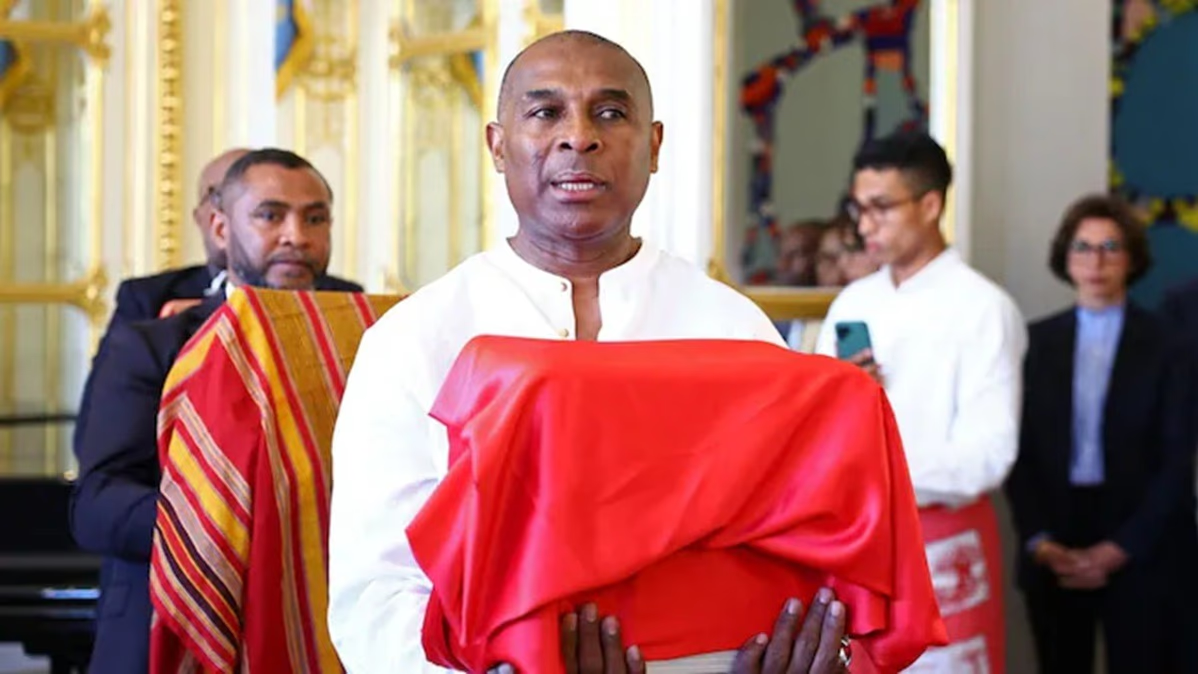A fierce battle once took place, over 128 years ago. In this conflict, one side severed the head of the opposing king, taking it to their homeland as a trophy of victory. This decisive historical event unfolded between France and Madagascar, with French soldiers executing the grim task of beheading the King of Madagascar.
The echoes of this battle, fought on the island of Madagascar located on the eastern coast of Africa within the Indian Ocean, are still vividly remembered by local tribes. It's a complex tale of colonial expansion, cultural clash, and native resistance.
Before diving into Madagascar's story, it's crucial to note that France, after 128 years, has returned three human skulls to Madagascar, once displayed in a Paris museum. Among these skulls is believed to be that of King Toera. In 1897, France unleashed a brutal massacre in Madagascar that claimed the king's life. As a symbol of conquest, these three skulls were taken to France following the massacre.
The Tale of the 1897 Battle
Madagascar, a land endowed with remarkable biodiversity, vibrant cultures, migration, trade, and struggles, is an entity shaped by history. It's almost impossible to grasp its present without understanding its colonial past, as the fourth-largest island in the world.
By the early 19th century, much of Madagascar was under the Merina Empire led by King Radama I. He forged alliances with British imperialists and spread Christianity. His widow, Queen Ranavalona I, resisted foreign intervention. After her demise, Madagascar reengaged with Europe.
In 1895, French forces captured Madagascar's capital, Tananarive, pressing the Queen to sign a treaty.
At that time, General Joseph Gallieni was the French Commander in Madagascar, aiming to solidify control over what he deemed a strategic outpost in the Indian Ocean.
By 1897, Gallieni deshrouded the final ruler, Queen Ranavalona III, of the Merina Empire and dismantled the Malagasy monarchy, turning Madagascar into a French colony.
Widespread violence marked this oppressive period, including the notorious Ambiky massacre, which claimed the lives of King Toera and many others.
King Toera was a respected leader among the Sakalava people in Madagascar's Menabe region. He fiercely defended his freedom and opposed foreign domination, making him a target for French colonial forces who saw him as an obstacle in their quest to control Western Madagascar.
According to TalkAfrikana.com, an African website, the Ambiky massacre occurred overnight on August 29-30, 1897, during a French military campaign. Despite King Toera's intent to negotiate and lay down arms, French soldiers under Augustin Gerard launched a sudden and ruthless attack on Ambiky village. The outcome was tragic, with King Toera and thousands of Sakalava leaders perishing.
The French military justified the invasion with the same imperialistic rhetoric long employed by colonial powers. France deemed the campaign necessary to suppress rebellion and ensure regional security, resulting in 2,500 casualties.
Driven by imperialistic fervor, French forces decapitated King Toera during this skirmish, taking his skull as a war trophy.
'Skulls as Open Wounds in Our Hearts'
As reported by Al Jazeera, France's culture minister Rachida Dati acknowledged that the skulls were incorporated into France's national museum under conditions blatantly abusing human dignity and reflecting colonial violence.
Madagascar's minister Volamiaranti Dona Mara praised the return of these skulls, noting, "For over a century, 128 years, these skulls have been like open wounds in the heart of our island."
Mara emphasized, "These are not mere collection items; they are invisible yet indelible links connecting our present to our past."
Dati further stated that a joint scientific committee confirmed the skulls belonged to the Sakalava people, although they could only 'speculate' that one skull was that of King Toera.
Final Farewell 128 Years Later
This Sunday, the skulls will return to the Indian Ocean island for reburial after 128 years. Minister Mara highlighted that a tribute will be paid 128 years later, on the very day the French army killed their king.
Remarkably, during his visit to Madagascar's capital, Antananarivo in April, French President Emmanuel Macron offered "apologies" for France's "bloody and tragic" colonial past in Madagascar, which gained independence from France in 1960.




